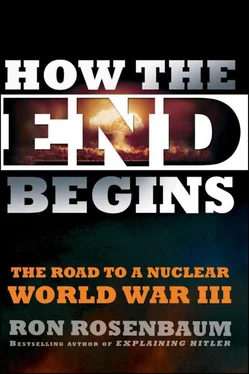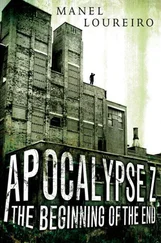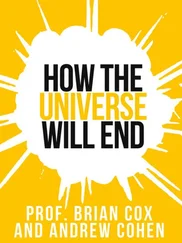SENIOR INTELLIGENCE OFFICIAL 2:At the reactor, not in generalized nuclear cooperation.
SENIOR INTELLIGENCE OFFICIAL 1:To go with the question you’re asking [about] weapons. We said, we believe it. There’s no other reason for it. [“No other reason” sounds like dead certainty but ends up being described as “low confidence” in estimative language because it’s an assessment not direct evidence such as a Syrian official saying, “Why else do you think we’re building this reactor?”] But our confidence level that it’s weapons is low at this point. We believe it, but it’s low based on the physical evidence [i.e., the absence of a plutonium reprocessing facility in the vicinity].
Q:Even at the time of the destruction of the reactor?
SENIOR INTELLIGENCE OFFICIAL 1:Even at the time. [Because “even at the time” there was “no other reason” than weapons fuel production, but no weapons fuel had yet been produced.] So now, what that asks is, in a nuclear program, it’s complex. There are a series of steps and stages. So was that something evidence that would be uncovered at a point in time? And I’ll just leave it right there as to where it is at the moment, other than to say we have reasonable confidence that we have, that the Israelis have destroyed a [weapons-producing] capability. And we are monitoring everything to see if there’s anything subsequent to that.
Q:Do we have any reason to believe that the Syrians now have or are building a reprocessing capability?
SENIOR INTELLIGENCE OFFICIAL 1:Just let me leave it with what I described. [Another interesting evasion. For all we know the reprocessing could have been designed to take place in Iran.]
SENIOR INTELLIGENCE OFFICIAL 2:And as you say, this makes no sense without that. [In other words, yes, there is a reprocessing capability but we can’t for whatever reason say anything more about what we know or how we know it without giving the reprocessors a clue that someone may know where they are, and be coming after them.]
Q:This does make no sense without that. And that’s my hardest part with the evidence that you’ve shown. And I think it’s interesting that you have a low-confidence level that they… [An example of a reporter just not getting that “low confidence” doesn’t mean deep doubt. An understandable confusion, created by the—let’s come out and say it—stupidity of the “confidence” hierarchy the intelligence community may have adopted after the Iraqi WMD debacle. In other words, it allows them to say things they believe as fact, but assign them “low confidence” if they turn out to be disproven later. And ingenious bureaucratic trick.]
Q:Did you tell the Israelis you have low confidence it was for weapons? [Another reporter, or the same one, still doesn’t get it.]
SENIOR INTELLIGENCE OFFICIAL 2:No, you need to understand. I’m sorry to dwell on the point. This is very, very important. [Yes!]
SENIOR INTELLIGENCE OFFICIAL 1:This is very important. [Double yes!]
SENIOR INTELLIGENCE OFFICIAL 2:We told our President four things: This is a reactor; the North Koreans and the Syrians are cooperating on nuclear activities; the North Koreans and Syrians are cooperating on the construction of this reactor; and this reactor, its purpose, is to create fuel for a nuclear weapons program. Those are the things we concluded.
Now, when you look at the body of evidence of those four sentences and begin to sort out how much of that is based on an overwhelming body of evidence as opposed to a more limited body of evidence and therefore more reliant on assessment, the fact that it was a nuclear reactor—absolutely high confidence; the fact of Syrian-Korean nuclear cooperation spanning a decade at an intense level—high confidence. At the time of the strike, fact of North Korean–Syrian cooperation in the building of that reactor—medium confidence that then got higher because of events, some of which we have alluded to in the briefing, okay. [What others? He doesn’t say.] The fact that that material was going to be used for a weapons program—we believe that to be true, but because we did not have, as [Senior Intelligence Official 1] points out, additional clinical evidence of other activities, we could only give it a low confidence level. [It would be so much simpler to say “we could only make an absolute judgment based on the evidence, but you can’t prove a negative—i.e., you can’t prove it wouldn’t be used for something other than weapons.”] But you need to, and I think you understand what I’m trying to say. [Nudge, nudge, hint, hint, wink, wink.] That’s not more or less sure; it’s just that it’s a way of communicating that for which you have a large body of evidence and that for which you may not.
Q:Where is that confidence level now?
SENIOR INTELLIGENCE OFFICIAL 2:In terms of—
Q:On the last one you said a low confidence level that this was for weapons or has that changed in the aftermath of. [The guy still doesn’t get it.]
SENIOR INTELLIGENCE OFFICIAL 2:No. No, that has not changed. However actually, David, we haven’t addressed it, but I would suggest to you that the Syrian behavior after the strike keeping it secret, destroying it, not allowing the IAEA, if anything, it certainly doesn’t weaken that there were nefarious purposes for the reactor. [That is, doesn’t weaken their belief that they were highly confident about the low confidence judgment.]
Q:Three questions. Did the United States military aid in any way this Israeli strike through reconnaissance or through targeting help? Did the US obtain these photos or were they from another country’s intelligence agency? And what is the intention of North Korea’s cooperation here? Is it cash-motivated? Are they looking to get plutonium themselves for their own reprocessing?
SENIOR INTELLIGENCE OFFICIAL 2:What was one?
Q:One was did the US military aid in any way the Israelis? with targeting or some other—
SENIOR INTELLIGENCE OFFICIAL 2:Let me talk a little bit obliquely here, okay. There is a rich intelligence exchange with a body of partners around the world that included an exchange on this information here. There is [a] difference between a rich exchange of intelligence and providing information that would actually enable the targeting and strike of this kind of target.
Q:So you shared information. You didn’t give them targeting information.
SENIOR INTELLIGENCE OFFICIAL 2:We were in A, not B on this. The second one?
Q:And the second one is did the US intelligence agencies obtain these photos or did they come through another nation’s intelligence?
SENIOR INTELLIGENCE OFFICIAL 2:I’m only free to say that we acquired the photos, and we have, and I tried to communicate to you under whatever guise we acquired them the confidence level we have in them.
Q:And North Korean intentions? Cash?
SENIOR INTELLIGENCE OFFICIAL 1:Cash.
SENIOR INTELLIGENCE OFFICIAL 2:It’s cash.
SENIOR INTELLIGENCE OFFICIAL 1:Cash. [The certainty here—the “confidence”—is puzzling unless based on hard eavesdropping or other evidence.]
Читать дальше











